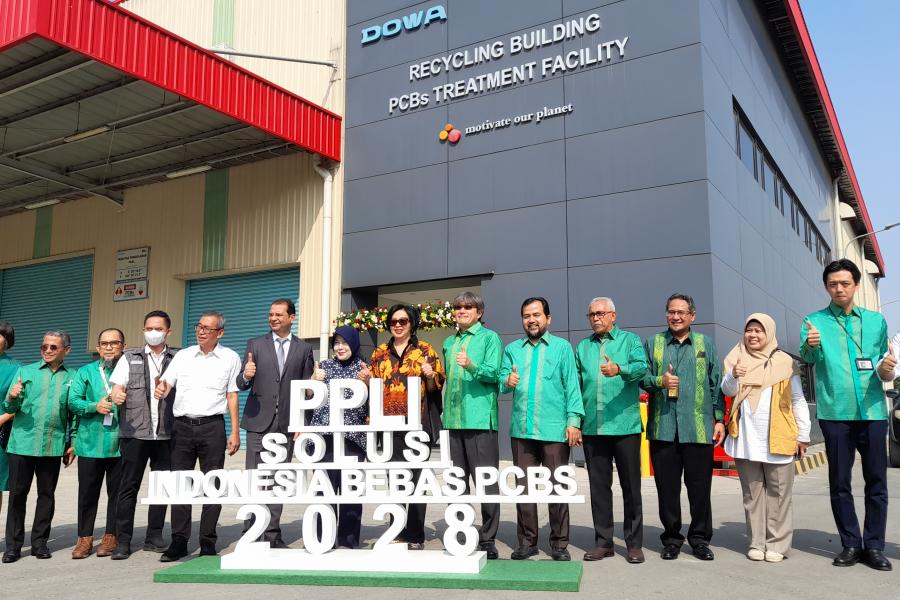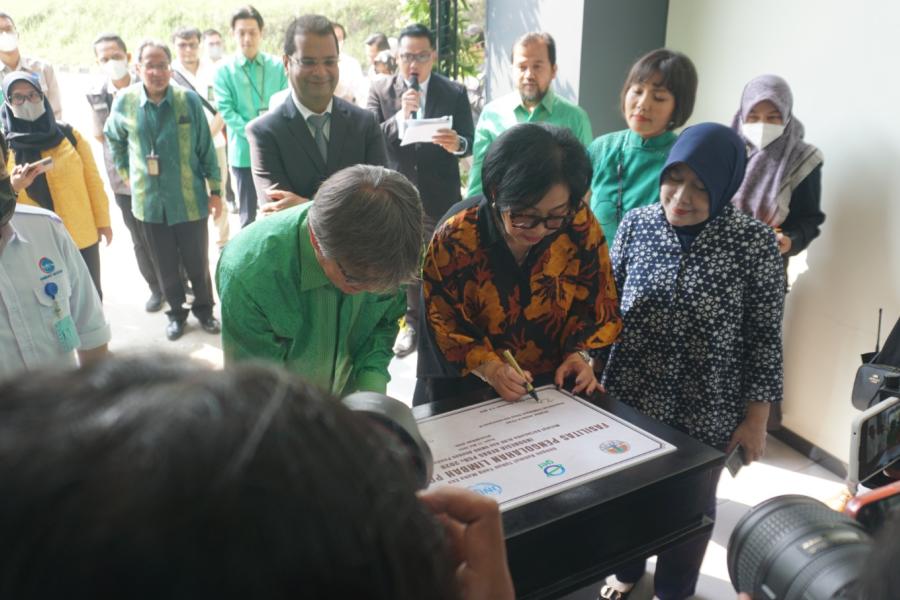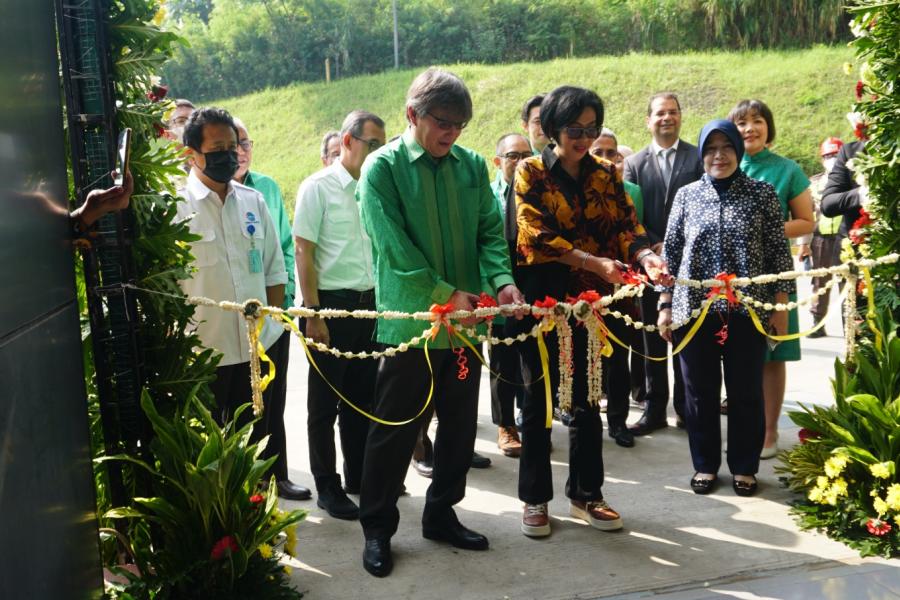Inauguration of the First PCBs Destruction Facility in Indonesia
19 May 2023
-----

The Ministry of Environment and Forestry (MoEF), with support from the UN Industrial Development Organization (UNIDO), has taken a major step today towards meeting Indonesia’s obligations under a key international convention and ridding the country of a toxic chemical, whose use has been banned worldwide. The opening of the country’s first facility to treat, in an environmentally friendly fashion, polychlorinated biphenyls (PCBs), a highly carcinogenic substance, will help the country get rid off 200,000 tons of the substance and another 600,000 tons of PCB-contaminated materials.
Indonesia’s commitment to support the achievement of the global target of PCB elimination by the end of 2028 was highlighted by the Director General of Solid Waste and Hazardous and Toxic Wastes Management, Rosa Vivien Ratnawati, SH, M.Sc, during the launch and inauguration of the PCB Wastes Destruction Facility located at PT. Prasadha Pamunah Limbah Industri Industrial (PPLi) in Nambo Village, Bogor Regency, West Java Province. "Today, 22 years since the adoption of the Stockholm Convention and 14 years since ratification, the Ministry of Environment and Forestry affirms that there has been no change in that commitment. In fact, the commitment has only grown stronger and will soon be integrated and implemented through the strengthening of various national mechanisms related to environmental management performance monitoring, including through the PROPER mechanism."

PCBs are highly hazardous and toxic compounds that are still present in electrical transformers and capacitors, especially in the dielectric oil contained in such equipment. Besides causing various types of cancer, PCBs can cause nerve damage, digestive system disorders, infertility and hormonal imbalances (including sterility). PCBs can contaminate soil, water and air for decades or even longer as they cannot be naturally degrade and eventually contaminate the food chain through bioaccumulation. Research conducted by several researchers from the National Research and Innovation Agency (BRIN) and the MoEF revealed PCB contamination in the Citarum, Ciliwung and Cisadane rivers. PCBs have contaminated dozens of economically-important fish species in rivers and coastal areas of Indonesia, and have even been detected in breast milk in several cities in Java and Sumatra.
The PCB Processing Facility inaugurated on Wednesday, May 17, 2023, is one of the important outputs of the technical cooperation "Introduction of an Environmentally-sound Management and Disposal Systems for PCBs Wastes and PCB-contaminated Equipment" funded by the Global Environment Facility (GEF) and by technical assistance from UNIDO. The technology is environmentally sound for not emitting CO2 or toxic gases dioxin and furan. UNIDO globally promotes the use of non-combustion methods for PCB destruction as recommended by the Stockholm Convention, said Salil Dutt, UNIDO representative in Indonesia.
"UNIDO is committed to supporting the parties to the Stockholm Convention in eliminating PCBs by referring to the Best Available Technology (BAT) recommended by the Stockholm Convention, especially non-combustion methods. To date, UNIDO has supported the destruction of PCBs in 32 countries in Asia, Africa, Europe, and America through a cooperation scheme with the GEF. The total GEF Trust Funds managed has a value of more than US$ 80 million, and it has supported more than US$ 360 million in co-financing by key project partnersSo far, the total amount of PCB waste that has been treated with the support of the UNIDO-GEF project has been more than 24,000 tons and will continue to increase until the end of 2028," Dutt said.

The roadmap towards elimination of PCBs in Indonesian is challenging as a result of the high amount of PCB stockpile in the country. To manage this, a public-private partnership approach has been chosen by MoEF and UNIDO by collaborating with PT. Prasadha Pamunah Limbah Industri (PPLi) as the Operating Entity. PT. PPLi is an experienced waste processing company with activities in processing PCB waste dating back to 1997. PPLi has now been granted an official operating license to operate the facility. The public-private partnership between the Indonesian Government and PT. PPLi is an important mechanism to ensure sustainable operation of the PCB destruction facility following the end of the MoEF-UNIDO PCB Project by the end of September 2023. A business-to-business approach between PPLi and owners of PCB wastes will facilitate sustainable operation in providing competitive services to PCB waste producers, said Ms Ratnawati.
"The synergy between MoEF, UNIDO, the GEF and PPLi in the installation and operation of this PCB destruction facility is expected to yield lessons learned not only for Indonesia but also for other countries, especially in the Asia-Pacific region. It is also important to emphasize that this synergy serves as a real support and solution for companies that produce and own PCB waste in Indonesia, particularly those who have a commitment to protect the environment towards sustainable and inclusive development." she said.








